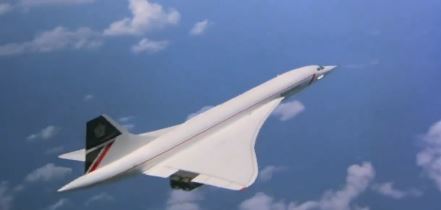Anthropic says its AI will not be used to spy on customers, even in government contracts. Here is what that means for AI governance, enterprise trust and defence partnerships.
Inside the Concorde, secrets untold, the future in history

Once upon a time, there was a plane of the future known as the Concorde which was the first and the last commercial supersonic passenger jet that flew at a top speed of Mach 2.01.
If you look closely that’s almost twice the speed of sound. If we look at the planes that set the tone we see the Lockheed YF-12, a 1960s fighter jet that could reach a top speed of Mach 2.96 at sea level, according to Luxatic.
The North American X-15 led the pack with top speed clocking Mach 5.93. The experimental aircraft was used and powered by NASA and USAF.
The Boeing 747-8i, the 747-8 Intercontinental, Boeing 747-400, and the super-jumbo Airbus A380 made an impression as passenger planes that could reach speeds between Mach 0.86 and Mach 0.85 and yet this retired Concorde still reigned unchallenged.
The Concorde lives
This is the first takeoff of the Concorde pic.twitter.com/AjxQ8dzI0k
— Blue Bay Network (@BlueBayNetwork) October 2, 2023
The Concorde was the first and last commercial supersonic passenger jet that could fly from London to New York in less than three hours.
In October 2003, the Concorde was grounded for a number of reasons that the legendary aircraft couldn’t fly past.
What went sideways?
A benchmark set by the Concorde still has a number of airlines exploring the high-speed travel service field in the near future.
There are reports of United Airlines signing a deal to launch a supersonic jet by 2029, with Virgin Galactic also raising its hand with a plan to design a plane flying at Mach 3, capable of reaching New York from the UK in just two hours.
We digressed.
So what went wrong?
A number of issues led to the supersonic passenger plane, the Concordes’s retirement from commercial service in 2003.
Service factors contributed to its discontinuation and other factors include economic viability, noise pollution, limited routes and safety concerns.
The Concorde was aging with the costs for maintenance escalating. It became too expensive to keep the plane in service while ensuring they met stringent safety standards.
Concorde drooping nose and visor 😎
pic.twitter.com/vdqJed6tQK— Thenewarea51 (@thenewarea51) September 30, 2023
The supersonic plane had limited range which meant a limited number of routes it could service. It operated between London, Paris, New York and a few other cities and came with high operating costs and limited seating capacity which contributed its ability to turn a profit especially as fuel prices increased.
Once upon a time you could travel from New York to London in 2 hours 52 minutes.
This was Concorde. Nothing replaced it. pic.twitter.com/uYhKVgIZ1o
— I❤️Nostalgia ‘𝕏’ (@il0venostalgia) October 1, 2023
Some of the safety concerns also added to the list of issues that covered the planes lift and the crash of Air France Flight 4590 in July 2000, raised concerns about the safety of the fleet which at the time faced aging issues.
Following a temporary suspension, the Concorde was grounded.
This year, the commercial aircraft was temporarily removed from the Intrepid Museum for restoration and placed on a barge to be relocated to the Brooklyn Navy Yard.
The restoration process includes sanding and stripping the plane down to bare metal.
#IntrepidMuseum → Brooklyn Navy Yard
Looking forward to welcoming back #Concorde in spring 2024! pic.twitter.com/DSTKB0YYYc— Intrepid Sea, Air & Space Museum (@IntrepidMuseum) September 27, 2023
The Concorde set an impressive bar with flights that would take less than one and half hours to cover the distance of 5.570km between New York and London. With a wingspan of 168 feet and length of 328, the Concorde could fly carrying 170 people.
Inside the cockpit of the Concorde. Never seen so many instrument panels and buttons 😳🤯 pic.twitter.com/hIFzR2GorG
— Blue Bay Network (@BlueBayNetwork) October 2, 2023
Also read: How video conferencing market will coin R400 billion

